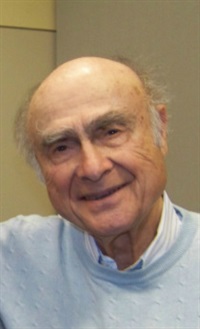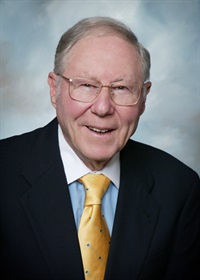EP05 Point/Counterpoint 10 - The Next Giant Step for Psychotherapy - Erving Polster, PhD
- Average Rating:
- Not yet rated
- Topic Areas:
- Point/Counterpoint Sessions | Psychotherapy | History of Psychotherapy | Life Focus Community
- Categories:
- Evolution of Psychotherapy | Evolution of Psychotherapy 2005
- Faculty:
- Erving Polster, PhD | William Glasser, MD
- Duration:
- 1 Hour 19 Minutes
- Format:
- Audio Only
- Original Program Date:
- Dec 08, 2005
- License:
- Never Expires.
Description
Description:
Historically, psychotherapists have worked with individuals, small groups, large groups and organizations. We have moved from treating pathology to facilitating personal growth to expanding public consciousness. A next step is the life-long guidance of congregations of people. With religion as a precedent, and large group formation as an instrument, Dr. Polster will show how we may address the everyday, non-pathological needs of the community at large, spelling out some of these procedures and their theoretical underpinnings.
Educational Objectives:
- To describe the need for Life Focus Communities.
- To name three activities which will be prominent in their meetings.
*Sessions may be edited for content and to preserve confidentiality*
Credits
Faculty

Erving Polster, PhD Related Seminars and Products
Erving Polster, Ph.D in clinical psychology, is the Director of The Gestalt Institute of San Diego, and the author of several important books, including Gestalt Therapy Integrated, Every Person's Life is Worth a Novel, and From the Radical Center: The Heart of Gestalt Therapy, as well as dozens of articles and chapters. Erving has authored 6 books. In his current writings, he offers perspectives and designs for a communal application of psychotherapy principles. He also describes and celebrates a powerful contemporary momentum for people-at-large to join together in the search for personal and social enlightenment.

William Glasser, MD Related Seminars and Products
William Glasser, MD, who received his MD degress in 1953 from Case Western Reserve University was an American psychiatrist. William was awarded an honorary doctorate in human letters by the University of San Francisco. Founder and Director of the Institute for Reality Therapy, he was authoer and editor of ten books on the topics of reality therapy and education. He was also the developer of Choice Theory. His ideas, which focus on personal choice, personal responsibility and personal transformation, are considered controversial by mainstream psychiatrists, who focus instead on classifying psychiatric syndromes as "illnesses", and who often prescribe psychotropic medications to treat mental disorders.


